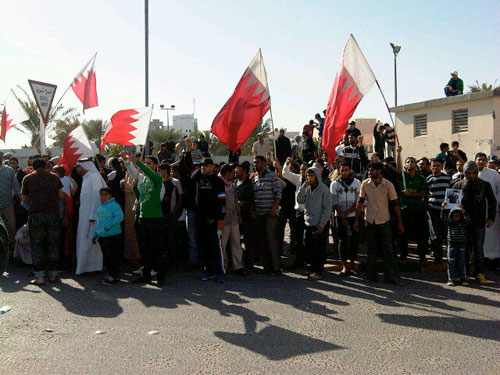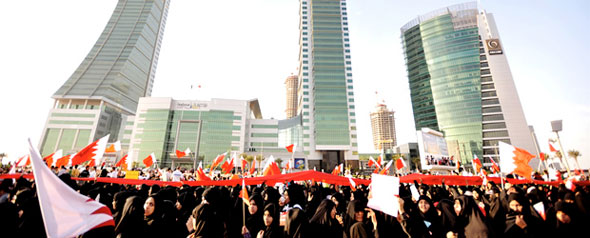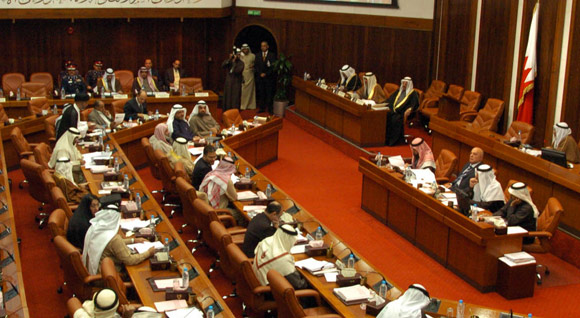5 Fundamental Divides in Bahrain: Why is Bahrain Divided?
Bahrain Top Stories
5 Fundamental Divides in Bahrain
There are at least five fundamental divides in Bahraini politics.
5 Fundamental Divides in Bahrain
The third, divide is the role of Iran. Since Iran’s 1979 revolution, that country provides the exemple of a religiously dominated society.
There are at least five fundamental divides in Bahraini politics.
The first is the fact that the monarchy is Sunni, which means that its Sunni supporters hold most of the higher governmental posts, as well as most of the major economic, business, and banking/financial positions of wealth and leadership. The Shi’a, on the other hand, constitute the majority of the population (between 60% and 70%). The Shi’a majority thus claim to be excluded from major roles in government, commerce, and industry.
|
loading the player….
|
Besides the Shi’a/Sunni divide, there is also a fundamental divide between believers in a major role for Islamic religion in regulating society, and believers in a more liberal and non-religious rule of civil law. Shi’a and Sunni are found on both sides of this divide, although Shi’ite Islamists dominate the religious side. 
Since independence, the government of Bahrain has faced serious challenges from Shi’a fundamentalists. Following the 1979 Islamic Revolution in Iran, an unsuccessful coup d’etat was orchestrated in 1981 by the Islamic Front for the Liberation of Bahrain to install a clerical Shi’ite government to enforce religious law in place of the country’s increasing liberalization. In the mid-1990s, sporadic violence and unrest between cleric-led opposition and the government plagued the country until the ascent of the new King to the throne.
The third, divide is the role of Iran. Since Iran’s 1979 revolution, that country provides the exemple of a religiously dominated society. Iran is also Shi’a, while the Bahrain regime is Sunni, which makes the Iranian example very attractive to Bahraini Shi’a.
This brings us to the last two divides, which involves, first, foreign policy toward Saudi Arabia; and, second, the possibility of military conflict between the US/Israel/Saudi Arabia against Iran, or vice versa.
The Foreign Policy Divide
Saudi Arabia is a bitter competitor against Iran. This is, first, because both Iran and Saudi Arabia compete to extend their influence across the Middle East. Second, because Saudi Arabia is closely aligned with the United States, the EU, and especially Britain, while Iran views the West in general, and especially the United States, as the “Great Satan.” Third, because Iran is firmly opposed to Israel as the “Zionist Entity,” while Saudi Arabia is willing to make an accommodation with Israel if the Palestinian issue can be resolved satisfactorily. Fourth, because the enmity between Sunni and Shi’ite is centuries-deep, and the Saudis are Sunni, while the Iranians are Shi’ite. 
The Military Divide
Because the US and Israel on one side, and Iran on the other, make frequent threats of war each other, the presence of the US Fifth Fleet headquarters in Bahrain places Bahrain at the very epicenter of any conflict between these parties. In such a conflict, Saudi Arabia will side with the US and Israel against Iran. This places Bahrain at the very epicenter of both the centuries-old Sunni/Shi’ite enmity, and of the Saudi/Iranian rivalry for power and influence in the Middle East. Further, and most importantly, Bahrain sits at the epicenter of any military conflict involving the US, Israel, and Saudi Arabia against Iran, or vice versa. Neither the US nor Saudi Arabia would permit the king of Bahrain to become a figurehead for a Shi’ite dominated government, even if the king wanted to do so.
